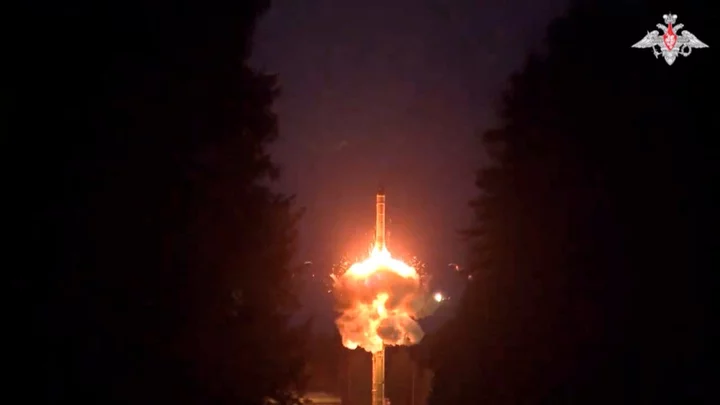
Putin presides over rehearsals of ‘massive’ Russian nuclear strike
Vladimir Putin has presided over a rehearsal to deliver what the Kremlin described as a “massive” nuclear strike, including the test launch of multiple ballistic missiles. While Russia holds similar rehearsals every autumn, Wednesday’s show of force came just hours after Moscow’s withdrawal from a significant nuclear test ban treaty and as its invasion of Ukraine approaches its second winter. Footage broadcast on state television showed the Russian president overseeing the annual exercises, dubbed “Grom”, via video call. The purpose of the drill was to “deliver a massive nuclear strike... in response to an enemy nuclear strike”, said defence minister Sergei Shoigu. The Kremlin said a Yars intercontinental ballistic missile was launched from a test site to a target in Russia’s far east, a nuclear-powered submarine launched a ballistic missile from the Barents Sea and Tu-95MS long-range bombers test fired air-launched cruise missiles. Russia, which has the world’s largest nuclear arsenal, has passed a bill in parliament that would revoke its ratification of a key nuclear test ban treaty, the Comprehensive Nuclear Test Ban Treaty (CTBT). Though it has never formally come into force, the CTBT has helped deter nuclear weapons testing around the world, with only North Korea conducting an explosive nuclear bomb test this century. Ukraine has said Russia’s withdrawal of its CTBT ratification was an attempt at “nuclear blackmail”. Mr Putin, who will be sent the bill for final approval, has said revoking Russia’s ratification would “mirror” the stance of the US, which has signed but did not ratify the nuclear test ban. Video footage of Wednesday’s military exercise released by the Russian defence ministry showed the land- and submarine-launched missiles piercing the night sky with loud roars, while nuclear-capable bomber aircraft departed from an airfield under the cover of darkness. “Under the leadership of the supreme commander-in-chief of the armed forces of the Russian Federation, Vladimir Putin, training was conducted with the forces and means of the ground, sea and air components of the nuclear deterrent forces,” the Kremlin said in a statement. “During the training, practical launches of ballistic and cruise missiles took place. The tasks planned in the course of the training exercise were fully accomplished,” it said. The latest developments have raised widespread concerns that Moscow could resume nuclear testing in attempts to discourage the West from continuing to offer military support to Ukraine. Russia’s deputy foreign minister Sergei Ryabkov said earlier this month that Moscow will continue to respect the ban and will only resume nuclear tests if Washington does it first. On Wednesday, Mr Ryabkov said the Russian foreign ministry had received proposals from the US to restart discussions regarding strategic stability and arms control matters. However, he pointed out that, given the current political climate, Moscow does not view it as feasible. “We aren’t ready for it because the return to a dialogue on strategic stability... as it was conducted in the past is impossible until the US revises its deeply hostile policy course in relation to Russia,” Mr Ryabkov told reporters in comments carried by Russian news agencies.
2023-10-26 14:58
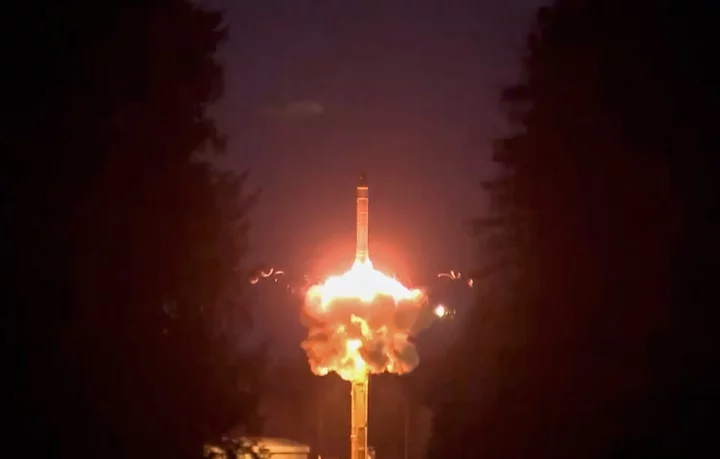
Ukraine-Russia war - live: Putin ‘rehearses massive nuclear strike’ as drones strike near Khmelnytskyi plant
Vladimir Putin has tested Russia’s ability to launch a massive retaliatory nuclear strike as he pulled the country out of an international test ban treaty. “Practical launches of ballistic and cruise missiles took place during the training,” Russian defence minister Sergei Shoigu said. A Yars intercontinental ballistic missile was fired in Russia’s far east, a nuclear-powered submarine launched a ballistic missile from the Barents sea, and long-range bombers test fired air-launched cruise missiles, according to the Kremlin. On Wednesday, Russia’s parliament unanimously approved legislation pulling the country out of the international Comprehensive Nuclear Test Ban Treaty, designed to limit the proliferation of nuclear weapon testing. It comes as a Russian drone attack damaged buildings near the Khmelnytskyi nuclear power plant in western Ukraine, wounding 20 people. The Ukrainian air force destroyed all 11 Russian drones, according to the military. Damage was caused by blast waves and falling debris. “At night, the enemy struck territory near the Khmelnytskyi nuclear power plant. As a result of the explosion, windows in administrative and laboratory buildings have been damaged,” Ukraine’s Energy Ministry said on the Telegram messaging app. Read More Russian drones likely targeted Khmelnytskyi nuclear power station, Zelensky says Business owners in a Ukrainian front-line city adapt even as 'a missile can come at any moment' Russian forces simulate nuclear strike as upper house rescinds ratification of test-ban treaty
2023-10-26 14:45
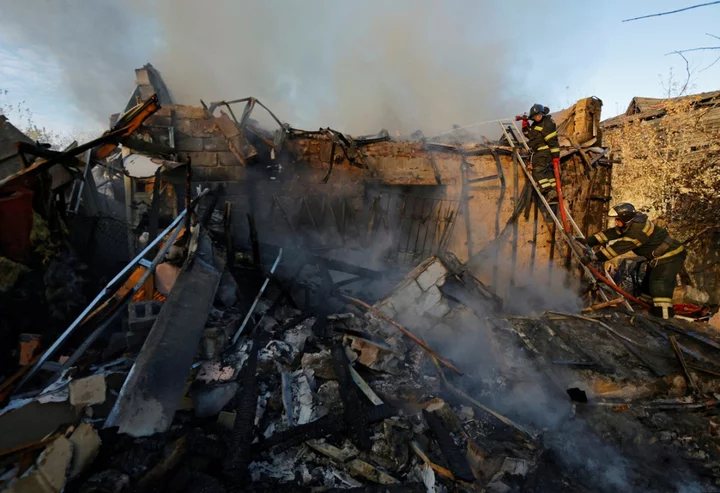
Russian drones likely targeted Khmelnytskyi nuclear power station, Zelensky says
Russia’s drone strike in western Ukraine likely targeted the Khmelnytskyi nuclear power station, president Volodymyr Zelensky said. He said the strike on Wednesday presented yet more evidence that tougher sanctions were needed against Russia and its dangerous acts that bypass international sanctions. At least 20 people were injured in the attacks in Khmelnytskyi region that also led to shattered windows at the nuclear power plant and nearby sites, and destroyed power lines, causing outages, Ukrainian officials said. Power was temporarily cut to some off-site radiation monitoring stations at the power plant and hundreds of buildings in the area sustained damage. “It is highly likely that the target for these drones was the Khmelnytskyi nuclear power plant – the shockwave from the explosion shattered windows, including those on the territory of the NPP [nuclear power plant],” Mr Zelensky said in his nightly video address. “Every Russian strike, especially ones as audacious as those targeting nuclear plants and other critical facilities, is an argument that the pressure on the terrorist state is insufficient,” he said. He said the assessment of the drones used in the attack showed their “missiles, originate from various countries, various companies, including Western ones”. The International Atomic Energy Agency, the UN’s nuclear watchdog, said blasts from the drone attack did not affect the plant’s operations or its connection to the grid, but raised concerns over the proximity of the attack to the plant. “The fact that numerous windows at the site were destroyed shows just how close it was. Next time, we may not be so fortunate,” said IAEA director general Rafael Grossi. Some 1,700 buildings in the area sustained damage. These included 282 apartment blocks, more than 1,400 private homes, 41 educational institutions and six healthcare buildings, regional governor Serhiy Tyurin said. The incident also caused damage to power lines, affecting over 1,800 consumers in the neighbouring towns of Netishyn and Slavuta, resulting in power outages. The Ukrainian air force repelled all 11 Russian drone attacks overnight, the military said, adding that the damage was caused by blast waves and falling debris. "At night, the enemy struck territory near the Khmelnytskyi nuclear power plant. As a result of the explosion, windows in administrative and laboratory buildings have been damaged," the energy ministry said on the Telegram messaging app. Earlier, the Ukrainian president said Kyiv was preparing for the attacks on their energy infrastructure not only to defend but to respond, ahead of the second winter of the Kremlin’s invasion of the country. “We are preparing for terrorist attacks on our energy infrastructure,” Mr Zelensky said. “This year we will not only defend ourselves, but also respond.” Russia has launched assaults on the Ukrainian cities of Kupiansk in the north and Avdiivka, seeking to besiege the strategic grounds on the battlefield. Read More Ukraine-Russia war - live: Putin turns to new weapon for winter attacks as bombing of Avdiivka continues Russian forces simulate nuclear strike as upper house rescinds ratification of test-ban treaty Study finds ‘deepfakes’ from Ukraine war undermining trust in conflict footage
2023-10-26 12:19
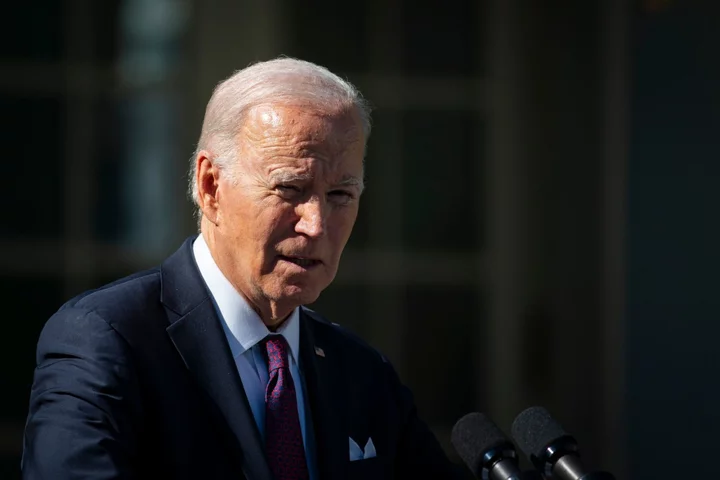
Biden Asks Congress for $56 Billion in Domestic Spending
President Joe Biden is asking lawmakers to approve just under $56 billion in disaster relief and other domestic
2023-10-26 10:19
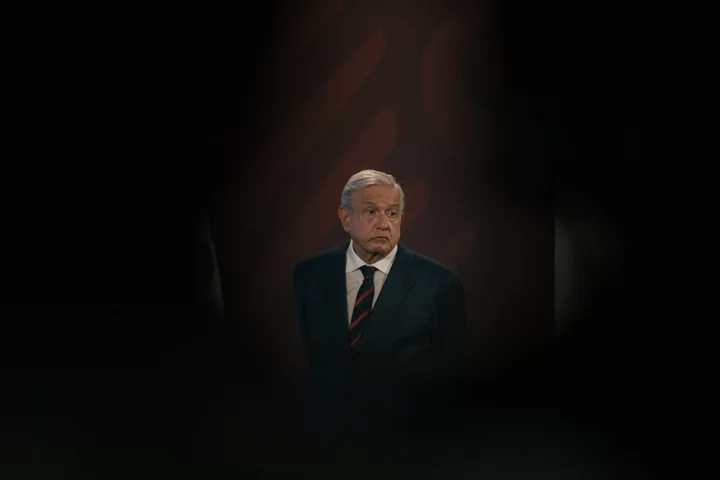
Hurricane Otis Lashes Mexico After Landfall Near Acapulco
Hurricane Otis’s top winds are weakening with its move across southern Mexico, drenching the region with flooding rains
2023-10-25 21:24

Gold One mine 'hostage situation': South African miners tell of escape
Hundreds of workers at a mine in South Africa are caught up in a dispute between two rival unions.
2023-10-25 20:26
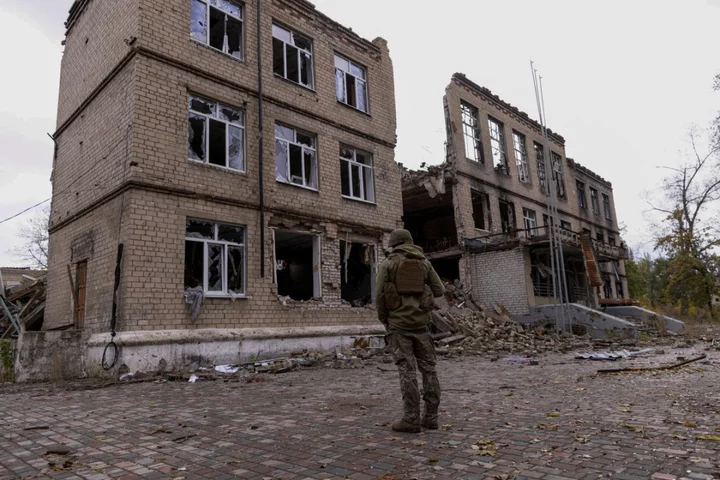
Ukraine-Russia war - live: Putin turns to new weapon for winter attacks as bombing of Avdiivka continues
The Russian Army has used new, longer-range drones for the first time in an attack against Ukraine near Kyiv, reports suggest. The Italmas weapon, which is harder to detect than the Iranian-made Shahed drone, may be part of Vladimir Putin’s strategy to expand Russia’s arsenal as harsher winter weather approaches, the Institute for the Study of War said. It comes as the Ukrainian city of Avdiivka, Donetsk, faced heavy shelling overnight as Russia continues with its offensive push into the region. “The enemy dropped about 40 guided aerial bombs in two nights. But the number of ground assaults has been reduced, half of what it was yesterday and the day before,” Oleksandr Shtupun, spokesperson for Ukraine’s southern group of forces, said. Mr Shtupun added that Russia had suffered about 2,400 casualties in the last five days during its campaing in the Donetsk region. Meanwhile, Ukraine launched an “underwater sabotage” attack on Russia’s Black Sea fleet near Sevastopol, Crimea, on Tuesday, according to Mikhail Razvozhayev, the Moscow-installed governor of the region. Read More Putin’s many ‘heart attacks’ and why the rumours may be in his favour Russian oil boss becomes third to die suddenly at company that criticised Putin’s war Ukraine's leader says Russian naval assets are no longer safe in the Black Sea near Crimea
2023-10-25 18:27
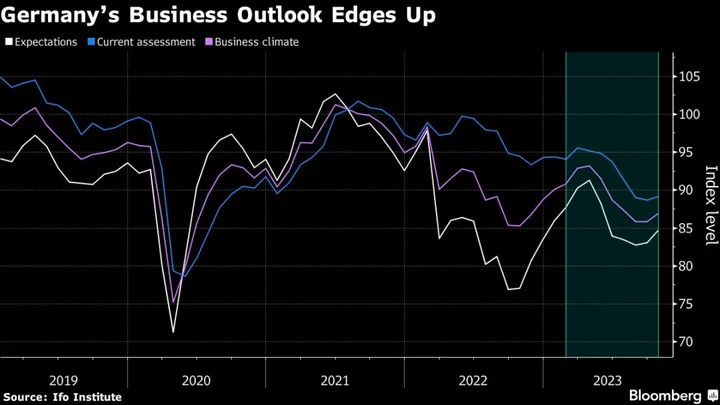
German Business Outlook Improves, Feeding Rebound Hopes
Germany’s business outlook improved slightly, supporting expectations for Europe’s largest economy to rebound modestly — even as it
2023-10-25 17:58
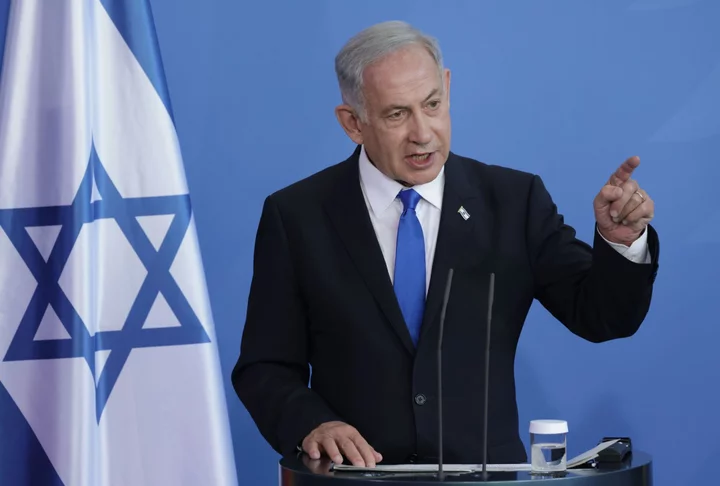
Israel’s Rating Outlook Cut to Negative by S&P on War Risks
Israel’s credit outlook was cut by the last of the three major rating companies that kept it at
2023-10-25 17:49

Zimbabwe Cedes Highest Interest Rate Title to Argentina
Zimbabwe gave up its unenviable position of having the world’s highest interest rate to Argentina, after slashing borrowing
2023-10-25 16:49
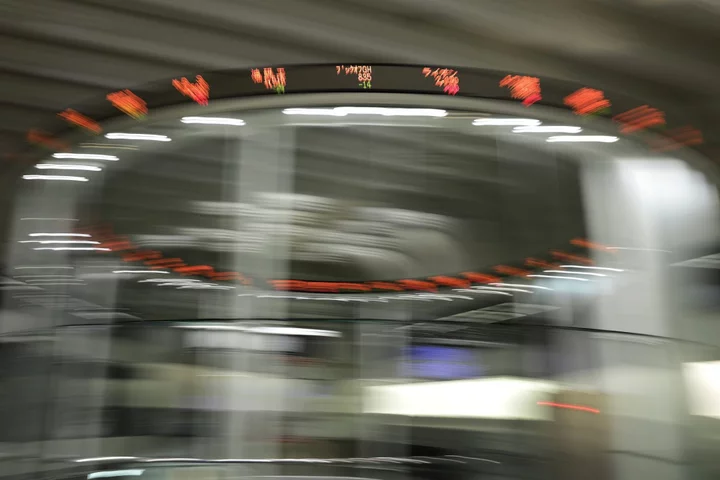
Kokusai Electric Soars 28% After Japan’s Biggest IPO Since 2018
Japanese chip-equipment maker Kokusai Electric Corp. jumped in Tokyo on Wednesday after the largest initial public offering in
2023-10-25 16:28
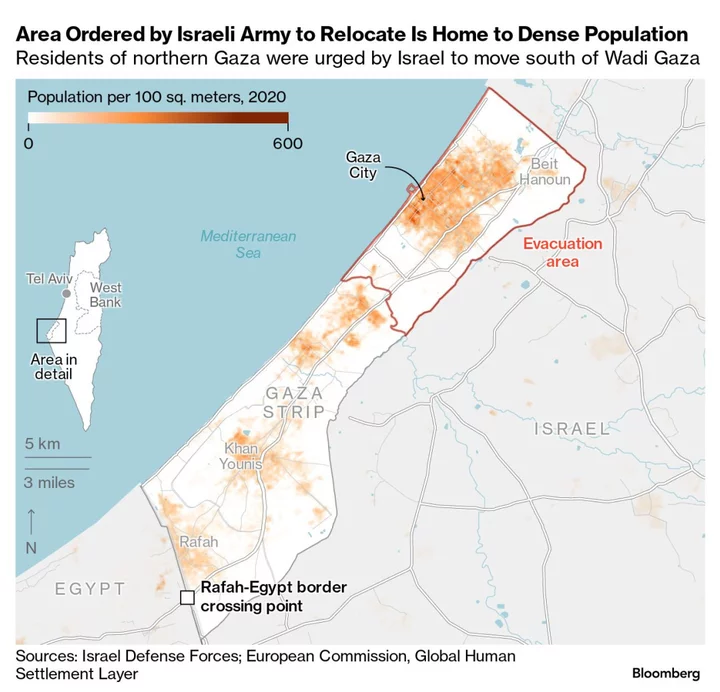
Biden, Saudi Crown Prince Discuss Efforts to Contain Israeli-Hamas Conflict
US President Joe Biden and Saudi Crown Prince Mohammed bin Salman spoke on Tuesday as part of efforts
2023-10-25 14:53
